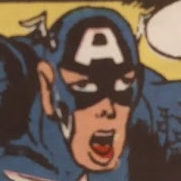Monstrous Regiment by Terry Pratchett - The funniest story at the intersection of nationalism and gender politics for my dollar. Been years since I read this first, but it felt relevant to the times so picked it up again. I do like to come back to a Discworld book after a few years - there's always some little bit I don't remember that gives me a chuckle, and bits and footnotes I'm glad to see again (“A woman always has half an onion left over, no matter what the size of the onion, the dish or the woman”). My mom read this too a few years ago and was impressed by how well he wrote women characters. Jackrum remains a beast.
Imagined Communities by Benedict Anderson - This one took me since December to get through in fits and starts, but by golly I did it. I am not schooled in the social sciences at all, and this book definitely assumes some level of familiarity I didn't have. However, I still found it interesting to sort of let it wash over me, and I think I agree with the shape of the thesis and I can see it. Getting my hands around the concepts of nationalism seems important right now (see above) - I don't recognize much of it in myself, or really any adherence to a group, but it's clearly shaping my country and the world right now.
One thing that frustrated me here was early on Anderson comments about how most readers are monoglots, and then dwells on this at length when discussing the impact of a polyglot bureaucratic class among the colonies. Then, despite that, he doesn't provide translations of multiple quotes, in multiple languages. Sorry I don't speak French and Latin, Ben. Also the structure of the footnotes was baffling. Some were mere references, some were whole separate little essays, some wandered off into abject tangents. It would have been clearer to read if you didn't have to constantly shift attention between the main text and a four-paragraph aside.
Captain America, the Classic Years vol. 2 by Joe Simon and Jack Kirby - I've read this volume a few times in the past couple decades, but pulled it off the comics shelf for no discernable reason. Maybe I wanted to see how it felt in the current political climate? Not sure I have that level of self-awareness.
Anyway, as long as I remember it was written for kids and just accept that the military camp is walking distance from both a foggy moor and a mobster-riddled city, it's fun in a flying fists kind of way. At the same time, knowing it was aimed at kids makes the propaganda aspects stick out all the more. The art, though pioneering, also sometimes borders on outsider art. Like, what are these faces:
A normal dog, or Jack Kirby predicts The Thing?
I'm sure others have written at length and with skill as to the pervasive racism in these comics, as well. It's worth calling out. You have a guy punching Nazis, which we can all get behind, but also saying stuff like "here come some Chinamen and they're not waving laundry tickets!". There's a whole story about a white artist driven to murder because he loses his hand and gets a "horrible black claw" grafted on to replace it. Yikes.
Boundless vol. 1 by Boston Comics Collective - Happened on this at our neighborhood yard sale. A fun little collection of comics on a nice variety of scientific topics. The entries about the Morris Worm and the nonlinear nature of research and discovery were my favorites.
The Drunken Botanist by Amy Stewart - Another one of those books you're probably not supposed to read cover-to-cover but oh well. An interesting overview of how various plants are used in brewing and distilling, and as flavors and tinctures. I learned a lot about agave in particular. The treatment of "Old World"/"New World" in terms of "explorers" "discovering" ingredients was uncomfortable at times. Learning about the global voyage Aquavit goes on may have inspired a D&D adventure, escorting some semi-secret cargo along a semi-secret route and bringing it back home.
Pictures and Stories from Forgotten Children's Books by Arnold Arnold - Woodcuts are always fun, but on the whole perhaps there's a reason most of these stories were forgotten. The longest recounted here is a version of Jack the Giant Killer, where the supposed trickster hero slaughters a dozen giants with the most basic of "tricks". Other than that it's mostly alphabets, cautionary tales, and gender essentialism. Arnold Arnold seems like an interesting guy though - he did pick that name rather than being born with it, and is apparently the person who created the Parker Brothers spiral logo. So that's neat.
Storm of Locusts by Rebecca Roanhorse - The sequel to Trail of Lightning, which I read a couple years ago when it came out. The first chapter gets things going immediately, introducing a new character and thrusting a death flag through the neck of one of the characters from the previous story. On the whole I liked it, but it's the second second-in-a-series book I've read this year and maybe that made all the worldbuilding hits fall a little too heavily at times. The escape from the auction sequence was my favorite.



No comments:
Post a Comment